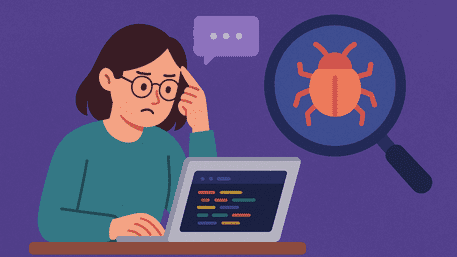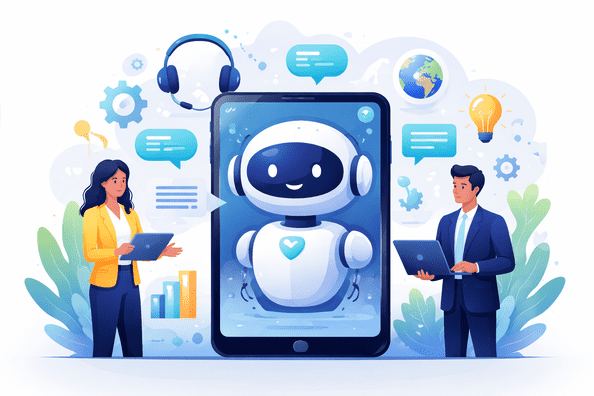The programming landscape has experienced a seismic shift with the introduction of OpenAI’s Codex, and beginners are the biggest beneficiaries of this transformation. This revolutionary AI-powered coding assistant, now available to ChatGPT Plus users as of June 2025, is fundamentally altering how newcomers approach software development. Unlike traditional learning methods that often overwhelm beginners with complex syntax and abstract concepts, the opportunity to learn to code with ChatGPT Codex provides an intuitive, conversational approach to programming education. What makes this particularly exciting is how Codex operates as more than just a code completion tool—it functions as a collaborative partner that can write features, debug code, and explain complex programming concepts in plain English. This quiet revolution is happening right now, as thousands of aspiring developers discover that coding doesn’t have to be an insurmountable challenge when you have an AI mentor available 24/7.
What Is OpenAI Codex and Why It Matters for Beginners
OpenAI Codex represents a breakthrough in artificial intelligence applied to software engineering, built on the foundation of the company’s powerful o3 reasoning system and specifically optimized for coding tasks. This cloud-based software engineering agent operates within ChatGPT, providing users with an intelligent coding companion that can understand natural language instructions and translate them into functional code across multiple programming languages. What sets Codex apart from traditional coding tools is its ability to work independently in isolated cloud environments, handling everything from simple script generation to complex debugging tasks while providing real-time feedback and explanations.
For beginners entering the programming world, Codex eliminates many traditional barriers that have historically made coding intimidating and inaccessible. The system can read and edit files, run test harnesses, and execute commands just like a human developer would, but with the patience to explain every step of the process. This means newcomers don’t need to spend months learning syntax before they can see tangible results from their efforts. Instead, they can focus on understanding programming logic and problem-solving approaches while Codex handles the technical implementation details, creating a more engaging and less frustrating learning experience.
How Codex Transforms Traditional Coding Education
Traditional coding education has long followed a rigid structure: learn syntax, understand data structures, practice algorithms, then attempt to build something meaningful. This approach, while thorough, often leaves beginners feeling disconnected from the practical applications of what they’re learning. Codex flips this model by allowing students to start with their end goals and work backward, using natural language to describe what they want to build and then learning from the AI’s implementation. This project-based approach keeps motivation high because learners can see immediate, tangible results from their efforts rather than spending weeks on abstract exercises.
The transformation extends beyond just methodology to the very nature of how programming concepts are introduced and reinforced. When working with Codex, beginners can ask questions like “Can you show me how to create a web scraper that gets weather data?” and receive not just the code, but detailed explanations of each component. This contextual learning approach helps students understand why certain programming patterns exist and when to apply them, rather than memorizing syntax without understanding its purpose. The AI’s ability to provide citations and trace each step of its process means learners can follow along with complex operations and gradually build their understanding of how different programming concepts interconnect.
Real-Time Code Generation: Learning by Watching AI Work
One of Codex’s most powerful educational features is its transparency in the coding process, allowing beginners to observe how experienced-level code is constructed in real-time. When Codex receives a task, it doesn’t just output final code—it walks through its reasoning process, makes iterative improvements, and runs tests until achieving the desired outcome. This gives beginners an unprecedented window into professional-level problem-solving approaches, showing them how to break down complex challenges into manageable components and how to iterate toward solutions.
The real-time aspect of this learning experience cannot be overstated in its educational value. Beginners can watch as Codex encounters errors, debugs issues, and refines its approach—essentially observing the trial-and-error process that defines real-world programming. This demystifies the coding process and helps newcomers understand that programming isn’t about writing perfect code on the first try, but rather about methodical problem-solving and continuous refinement. Students learn to embrace errors as learning opportunities rather than failures, developing resilience and analytical thinking skills that extend far beyond coding.
Why Learn to Code with ChatGPT Codex: The Beginner’s Advantage

The decision to learn to code with ChatGPT Codex offers beginners several distinct advantages that traditional educational approaches simply cannot match. First and foremost is the personalized, one-on-one tutoring experience that Codex provides, adapting its explanations and examples to match the learner’s current skill level and learning style. Unlike classroom environments where students must keep pace with predetermined curricula, Codex allows for completely individualized learning paths where beginners can spend as much time as needed on challenging concepts while accelerating through areas they grasp quickly.
Another significant advantage lies in Codex’s ability to provide instant feedback and correction, eliminating the frustration of waiting for instructor review or struggling with unclear error messages. When beginners make mistakes—which is an inevitable and valuable part of the learning process—Codex can immediately identify issues, explain why they occurred, and demonstrate the correct approach. This rapid feedback loop accelerates learning by preventing the formation of bad habits and ensuring that misconceptions are addressed before they become ingrained. Additionally, Codex’s vast knowledge base means it can provide context and alternative approaches for any programming challenge, exposing beginners to multiple problem-solving strategies from the very beginning of their coding journey.
Interactive Debugging: Teaching Problem-Solving Skills
Debugging represents one of the most challenging aspects of learning to code, often causing beginners to abandon their programming aspirations when faced with cryptic error messages and malfunctioning code. Codex transforms this experience by serving as an expert debugging partner that not only identifies problems but explains the underlying causes in accessible language. When code doesn’t work as expected, Codex can analyze the issue, suggest multiple potential solutions, and walk beginners through the troubleshooting process step by step, teaching valuable diagnostic skills along the way.
The interactive nature of debugging with Codex creates a safe learning environment where beginners can experiment freely without fear of breaking things irreparably. Since Codex operates in isolated cloud environments, students can try different approaches, make intentional mistakes to see what happens, and explore the boundaries of their code without any real-world consequences. This freedom to experiment is crucial for developing intuitive understanding of programming concepts and building confidence in problem-solving abilities. Moreover, Codex’s ability to provide citations and evidence for its debugging decisions helps beginners learn to think critically about code behavior and develop their own analytical approaches to identifying and resolving issues.
Multi-Language Support: Expanding Learning Horizons
Codex’s proficiency across multiple programming languages opens unprecedented opportunities for beginners to explore different programming paradigms and find their preferred development path. Rather than being locked into learning a single language—often chosen arbitrarily or based on local course availability—students can experiment with Python for data science, JavaScript for web development, Swift for mobile apps, and many other languages to discover where their interests and aptitudes align. This exploration happens naturally as beginners work on projects that interest them, with Codex providing the technical expertise to implement their ideas regardless of the language requirements.
The multi-language capability also helps beginners understand that programming concepts transcend specific syntaxes, building transferable skills that apply across different technological ecosystems. When students see how similar logic is expressed in various programming languages, they develop a deeper appreciation for underlying computational thinking principles rather than getting bogged down in language-specific details. This broader perspective proves invaluable as beginners advance in their programming journey and need to adapt to new technologies, frameworks, and programming environments throughout their careers.
| Traditional Learning | Codex-Assisted Learning |
| Linear curriculum progression | Project-based, interest-driven |
| Single language focus | Multi-language exploration |
| Delayed feedback | Instant correction and explanation |
| Generic examples | Personalized project assistance |
| Limited practice opportunities | Unlimited experimentation |
| Instructor-dependent pace | Self-directed learning speed |
Building Projects with AI Assistance: From Concept to Completion
One of Codex’s most transformative impacts on beginner education is its ability to help students build complete, functional projects from day one of their programming journey. Traditional educational approaches often require months of foundational learning before students can create anything meaningful, leading to frustration and abandonment. With Codex, beginners can start with an idea—perhaps a personal budget tracker or a simple game—and collaborate with the AI to bring that vision to life, learning programming concepts contextually as they arise during development.
This project-centric approach keeps motivation high because students immediately see the practical value of what they’re learning, rather than working through abstract exercises with unclear real-world applications. Codex can scaffold the learning experience by handling complex implementation details while explaining the reasoning behind design decisions, allowing beginners to focus on understanding program flow and user interaction patterns. As students progress, they gradually take on more implementation responsibility while continuing to leverage Codex for guidance and verification, creating a natural transition from assisted learning to independent development.
Common Challenges Beginners Face When Using Codex
Despite its many advantages, learning with Codex presents unique challenges that beginners must navigate to maximize their educational benefits. One significant issue is the temptation to rely too heavily on AI-generated code without developing personal understanding of the underlying concepts. Some beginners may find themselves copying Codex’s solutions without taking time to analyze and comprehend the logic, leading to superficial learning that doesn’t build genuine programming competency. This over-reliance can become problematic when students encounter situations where they need to modify or debug code without AI assistance.
Another challenge lies in developing proper learning discipline when working with such a powerful tool. Codex makes it easy to quickly generate working code, but beginners need to resist the urge to rush through projects without thoroughly understanding each component. The most successful learners establish habits of asking follow-up questions, experimenting with modifications, and testing their understanding by explaining concepts back to the AI. Additionally, beginners must learn to formulate clear, specific questions to get the most helpful responses from Codex, which requires developing communication skills alongside programming skills.
Key challenges include:
- Over-dependence on AI-generated solutions
- Insufficient time spent understanding code logic
- Difficulty transitioning to independent coding
- Need to develop effective AI communication skills
- Balancing speed with thorough comprehension
Success Stories: How New Programmers Are Leveraging Codex
Early adopters of Codex among beginner programmers are already demonstrating remarkable success stories that illustrate the transformative potential of AI-assisted learning. Many students report being able to build their first functional applications within weeks rather than months, with some creating impressive portfolio projects that would typically require advanced coursework to attempt. These success stories share common themes: students who approach Codex as a collaborative learning partner rather than a replacement for personal effort tend to achieve the most meaningful educational outcomes.
One particularly compelling pattern emerges among successful Codex learners—they use the AI not just for code generation but as a comprehensive programming mentor that can explain concepts, suggest best practices, and provide career guidance. These students actively engage with Codex to understand different approaches to solving problems, ask for explanations of unfamiliar syntax, and request feedback on their own code attempts. This interactive approach creates a rich learning experience that combines the benefits of personalized tutoring with the accessibility and availability that traditional human mentoring often lacks, leading to accelerated skill development and increased confidence in tackling complex programming challenges.
Getting Started with Codex: A Step-by-Step Guide
Beginning your programming journey with Codex requires a strategic approach to maximize learning benefits while avoiding common pitfalls. The first step involves gaining access to the tool through a ChatGPT Plus subscription, which became available to Plus users in June 2025. Once access is secured, beginners should start by exploring Codex’s interface and understanding how to formulate effective prompts that clearly communicate their learning goals and project requirements. The key is to begin with simple, well-defined projects that align with your interests—whether that’s building a personal website, creating a simple game, or automating a repetitive task you encounter in daily life.
The most effective approach for beginners involves treating each Codex interaction as a learning opportunity rather than simply a means to generate working code. Start by describing your project goal in natural language, then ask Codex to break down the implementation into smaller, manageable steps that you can understand and learn from individually. As you work through each component, don’t hesitate to ask follow-up questions about why certain approaches are chosen, what alternatives exist, and how different pieces of code interact with each other. This questioning approach ensures that you’re building genuine understanding rather than just accumulating code snippets, setting the foundation for independent programming skills that will serve you throughout your career.
The Future of Coding Education with AI Assistance
The integration of AI tools like Codex into programming education represents just the beginning of a fundamental transformation in how technical skills are taught and learned. As these systems become more sophisticated and widely accessible, we can expect to see traditional computer science curricula evolve to emphasize problem-solving, system design, and collaborative skills alongside basic programming competency. The focus will likely shift from memorizing syntax and algorithms to understanding how to effectively communicate with AI systems and how to evaluate and improve AI-generated solutions.
Looking ahead, the most successful programmers will likely be those who master the art of human-AI collaboration, knowing when to leverage AI assistance and when to rely on personal expertise. This evolution suggests that future coding education will need to balance AI-assisted learning with opportunities for independent skill development, ensuring that students develop both the ability to work effectively with AI tools and the foundational knowledge necessary to think critically about code quality and system architecture. As Codex and similar tools continue to evolve, they promise to make programming more accessible to diverse learners while simultaneously raising the bar for what constitutes professional-level software development competency.
The quiet revolution in coding education through Codex is just beginning, and its impact will likely reshape not only how individuals learn to program but also how the entire software development industry approaches talent development and skill acquisition. For beginners entering this transformed landscape, the opportunities have never been more promising or accessible.



